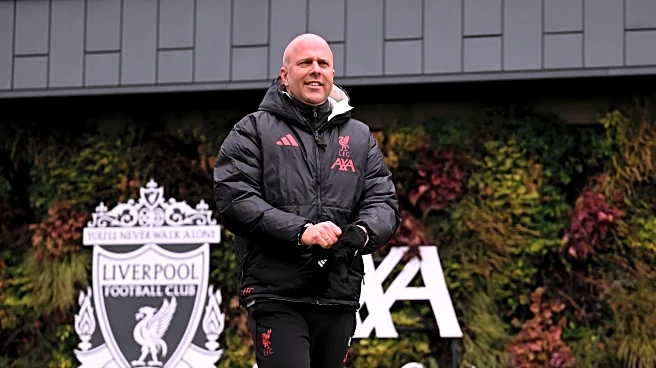What's Happening?
Egypt has proposed a plan for Hamas fighters, who are currently holed up in tunnels in Rafah, to surrender their weapons and locate the tunnels to exit safely. This proposal comes amid a ceasefire that
the fighters might be unaware of, as they have been out of contact since March. The situation involves Hamas and Red Cross workers who are currently engaged in searching for the bodies of deceased Israeli hostages in Shajaiyah, Gaza. The proposal aims to facilitate a peaceful resolution and ensure the safety of those involved.
Why It's Important?
The proposal by Egypt is significant as it represents a potential de-escalation in the ongoing conflict between Israel and Hamas. By encouraging the surrender of weapons and safe exit, it could lead to a reduction in hostilities and pave the way for further peace negotiations. This development is crucial for regional stability and could have broader implications for international relations, particularly in terms of humanitarian efforts and diplomatic engagements in the Middle East.
What's Next?
If the proposal is accepted, it could lead to a significant shift in the dynamics of the conflict, potentially opening up new avenues for peace talks. The response from Hamas and other stakeholders will be critical in determining the next steps. International actors, including the United States, may play a role in facilitating or supporting these efforts to ensure a sustainable resolution.
Beyond the Headlines
The proposal also highlights the complex nature of the conflict, where communication breakdowns can lead to prolonged hostilities. It underscores the importance of effective communication channels and the role of mediators in conflict resolution. The humanitarian aspect, particularly the search for hostages, adds another layer of urgency to the situation.









